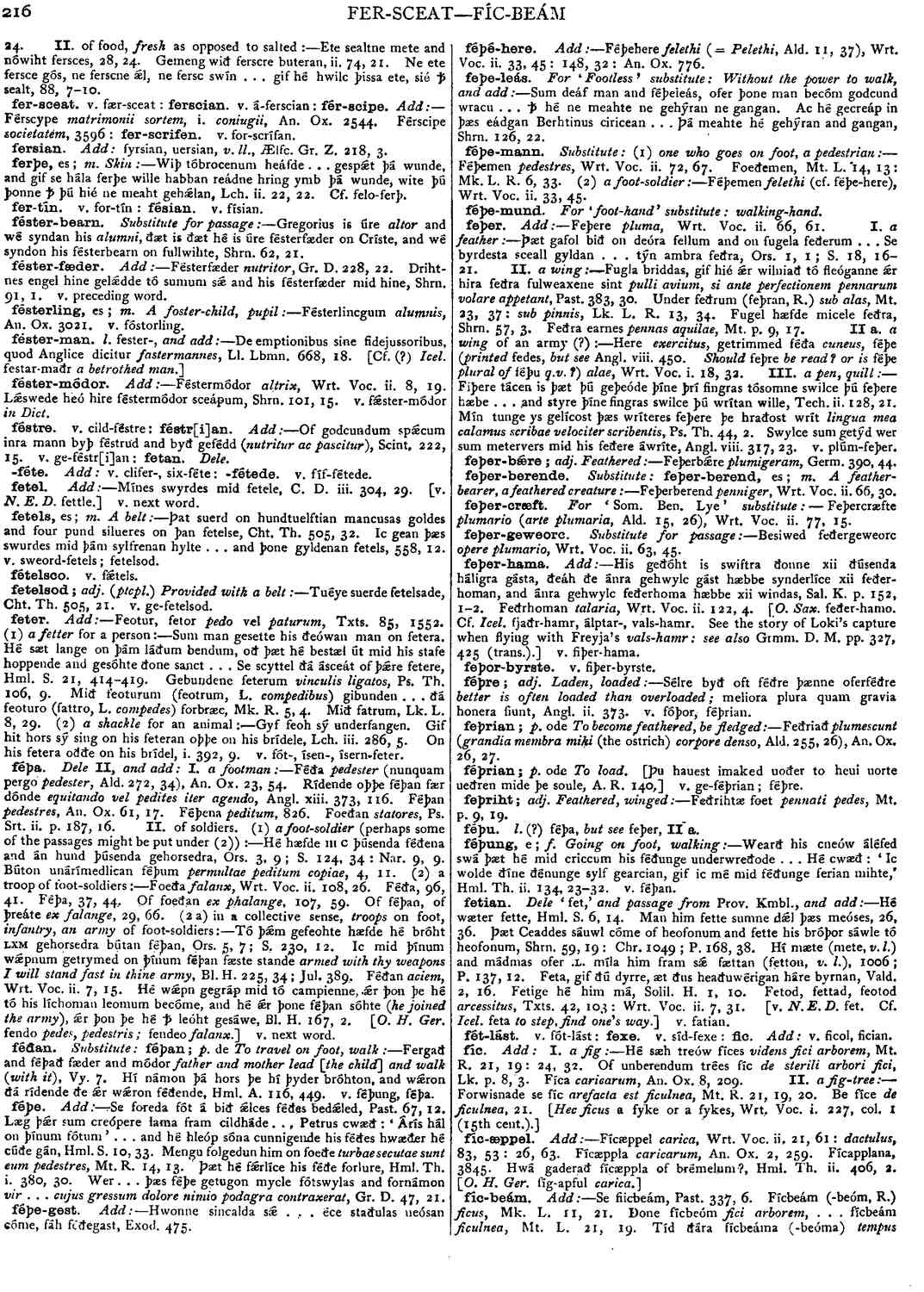féþa
-
Féða
pedester (nunquam pergo pedester,
- Ald. 272, 34 ),
- An. Ox. 23, 54 .
-
Rídende oþþe féþan fær dónde
equitando vel pedites iter agendo,
- Angl. xiii. 373, 116 .
-
Féþan
pedestres,
- An. Ox. 61, 17 .
-
Féþena
peditum,
- 826 .
-
Foeðan
statores,
- Ps. Srt. ii. p. 187, 16 .
-
Hé hæfde III C þúsenda féðena and án hund þúsenda gehorsedra,
- Ors. 3, 9 ;
- S. 124, 34 :
- Nar. 9, 9 .
-
Búton unárímedlican féþum
permultae peditum copiae,
- 4, 11 .
-
Foeða
falanx,
- Wrt. Voc. ii. 108, 26 .
-
Féða,
- 96, 41 .
-
Féþa,
- 37, 44 .
-
Of foeðan
ex phalange,
- 107, 59 .
-
Of féþan, of þreáte
ex falange,
- 29, 66.
-
Tó þǽm gefeohte hæfde hé bróht LXM gehorsedra bútan féþan,
- Ors. 5, 7 ;
- S. 230, 12 .
-
Ic mid þínum wǽpnum getrymed on þínum féþan fæste stande
armed with thy weapons I will stand fast in thine army,
- Bl. H. 225, 34 ;
- Jul. 389 .
-
Féðan
aciem,
- Wrt. Voc. ii. 7, 15 .
-
Hé wǽpn gegráp mid tó campienne, ǽr þon þe hé tó his líchoman leomum becóme, and hé ǽr þone féþan sóhte
(he joined the army),
ǽr þon þe hé ꝥ leóht gesáwe,
- Bl. H. 167, 2 .
Bosworth, Joseph. “féþa.” In An Anglo-Saxon Dictionary Online, edited by Thomas Northcote Toller, Christ Sean, and Ondřej Tichy. Prague: Faculty of Arts, Charles University, 2014. https://bosworthtoller.com/44889.
Checked: 1